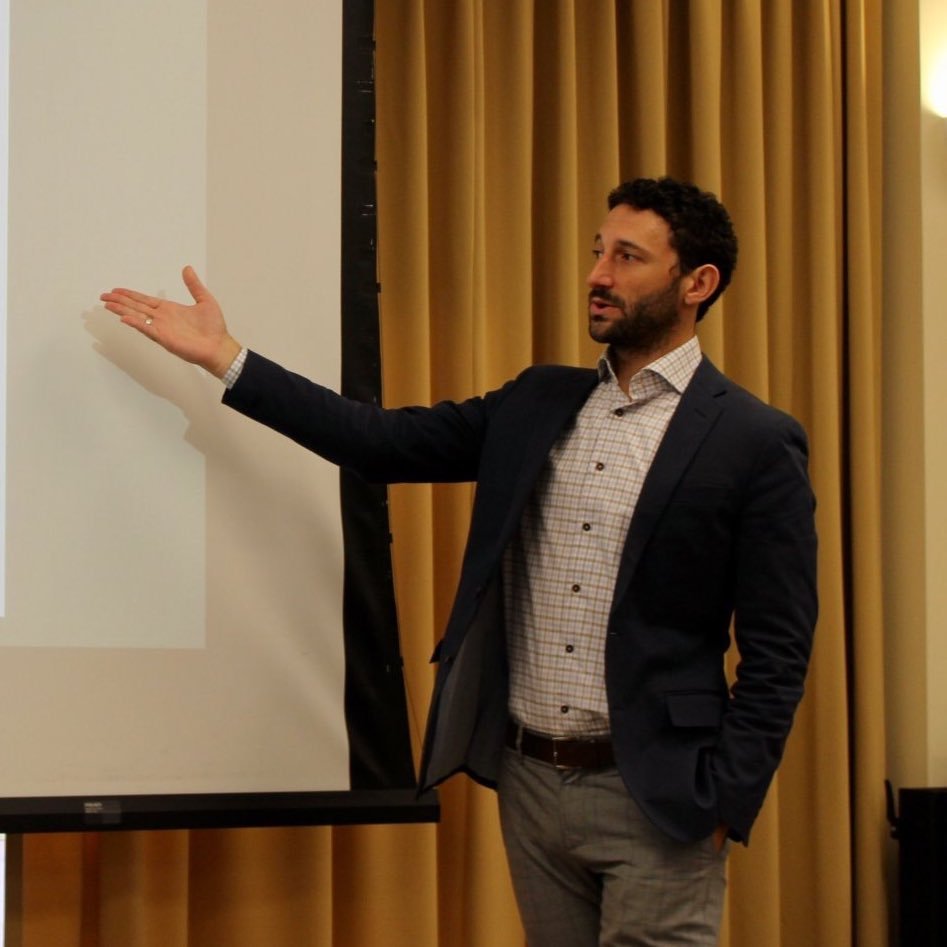
Ethan Hutt
@ehutt1
Followers
2K
Following
26K
Media
234
Statuses
9K
Associate Prof @UNCschoolofed; study ed history, reform, law; love TV, sports, dogs, & prose | |New book: https://t.co/tnUj9KduaR #Dodgers #THFC 🇺🇸🏳️🌈✡️
Chapel Hill, NC
Joined March 2009
📢NEW RESEARCH - Absences and Achievement After the Pandemic: Evidence from Maryland and North Carolina by @david_blazar, @SethGershenson & @ehutt1.
aei.org
In Maryland and North Carolina in the 2022–23 school year, 10 absences reduced elementary and middle school math scores by about 6 percent of a test-score standard deviation.
2
2
1
Huge credit to @natmalkus for his leadership in bringing such a talented group of scholars together to study this issue. We need intellectual and organizational leadership like this now more than ever in education policy. Thank you, Nat!
0
0
1
This is the first of a slew of briefs about to be released by @AEIeducation on the critically important issue of chronic absenteeism. 4/
1
0
0
As @david_blazar, @SethGershenson and I show, the harmful effect of being absent on student test scores has declined about 10% in the post-pandemic school. But it is still significant. And, I think most importantly, the effect is linear--so every absence matters. 3/
1
0
1
Most of the concern about spiking chronic absenteeism rates is predicated on the assumption that absences matter and that they matter in the same way they did before the pandemic. While this seems intuitive, intuition often leads us astray in education, so we had to find out! 2/
1
0
0
We have a new research brief out today (the first of two!) looking at the effect of absences on achievement in post-pandemic schools in MD and NC. 1/
📢NEW RESEARCH - Absences and Achievement After the Pandemic: Evidence from Maryland and North Carolina by @david_blazar, @SethGershenson & @ehutt1.
1
0
2
Y’all, I wrote a book! The Science of Second Chances is based on my decades of work studying crime and criminal behavior, first as an economics professor and now as a policy expert at Arnold Ventures. It shares what we know from cutting-edge research about how to intervene at
29
116
496
1/ Some quick thoughts on the St. Isidore oral arguments yesterday, about whether Oklahoma must permit the operation of a Catholic charter school. In no particular order… 🧵 #education #SupremeCourt #law
https://t.co/WlVCwA8imR
1
2
1
Also, I do wish liberals would drop the argument that schools can or should be in the business of hiding or not informing parents about what goes on in schools. It might not be unconstitutional but it’s a bad look.
0
0
2
I think @ScribnerUMCP’s hope that the case might led to a narrower reading of Yoder is…unlikely to be fulfilled.
2
0
0
Curious what @ScribnerUMCP @AaronTangLaw @NDhingra4 made of the argument. As is often the case, I thought Kagan and Barrett were the most effective questioners. The number of other available curricular opt outs in the county is a real bad fact for the county…
Haven't read it yet, but the "Mahmoud" transcript is up! https://t.co/kPBvDOEuao
4
0
2
One very reasonable (and historical) theory for what ED shd do to facilitate public education in the states, is to provide access to info that leads to developing better schools and good choices. So why kill off ERIC? There’s no theory or plan at all.
0
1
1
Quite the opposite. The one thing they’ve articulated consistently is a desire to pass off ED tasks to *other* agencies, which seems like a sure fire way to make those agencies less efficient. What’s the merits argument for HHS doing special ed better? I haven’t heard it 2/x
1
0
2
I also love Office Space (and not just bc it prefigured Severance) and agree w/ a lot of this take. But “accountability” “efficiency” are outcome terms. And this administration has not even remotely articulated a view of what ED shd do efficiently & w/ greater accountability. 1/
The Department of Ed Meets Office Space The purpose of downsizing ED should be accountability and efficiency, not just getting rid of people. Me, at @EducationNext.
1
0
1
SCOTUS will soon hear 2 major edu cases. One of them concerns whether states must provide funds for religious charter schools. Today in the LAT, @AaronTangLaw and I explain why the history and tradition of school funding say the answer is clearly: no. https://t.co/gm6zmY89zM
latimes.com
The current court has deemed history and tradition to be central to the interpretation of our constitutional rights. Two centuries of history on this topic is clear.
2
1
7








